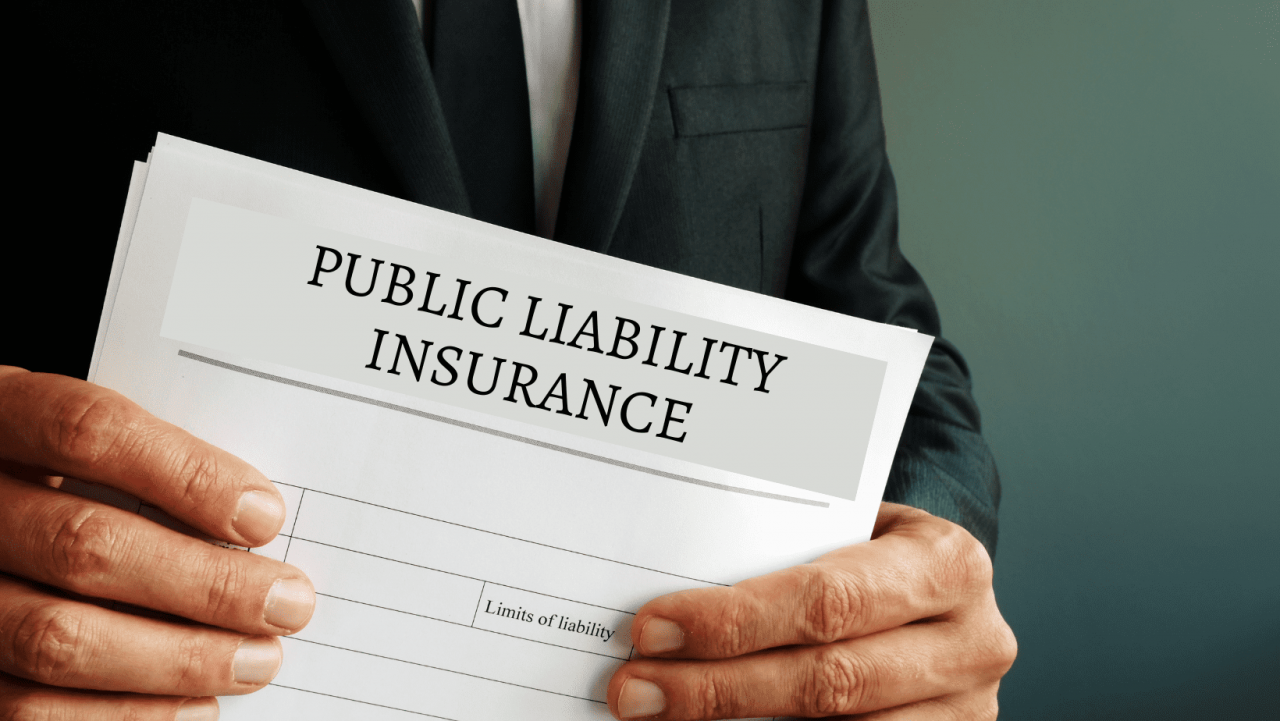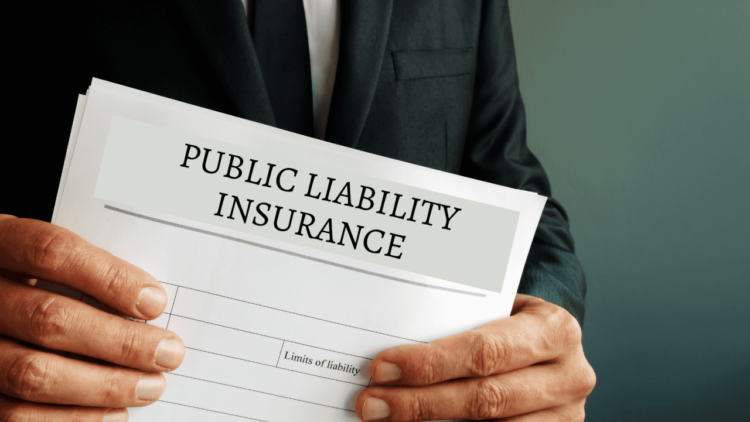
What is public liability insurance in Australia? It’s a crucial safety net for individuals and businesses alike, offering protection against financial losses stemming from accidental injuries or property damage caused by their actions or negligence. Imagine a scenario where someone trips over a loose floorboard at your shop and suffers a broken leg. Public liability insurance would step in to cover the medical expenses, legal fees, and potential compensation claims, safeguarding you from crippling financial burdens.
Public liability insurance is a fundamental aspect of risk management in Australia, providing a shield against unforeseen circumstances. It’s a vital tool for businesses of all sizes, from small cafes to large construction companies, ensuring they can operate with confidence, knowing they are protected against potential liabilities. Even individuals involved in certain activities, like hosting events or running workshops, can benefit from the peace of mind this type of insurance offers.
What is Public Liability Insurance?

Public liability insurance is a type of insurance that protects you from financial losses if you are found legally responsible for causing injury or damage to another person or their property. It’s a crucial safety net for businesses and individuals alike, helping them avoid potentially crippling financial burdens.
Real-World Example
Imagine you’re hosting a birthday party at your home. A guest trips over a loose floorboard and breaks their leg. They could sue you for medical expenses, lost wages, and pain and suffering. If you have public liability insurance, your insurer would cover these costs up to your policy limit, protecting you from significant financial strain.
Key Risks Covered
Public liability insurance in Australia typically covers a range of risks, including:
- Personal Injury: This covers situations where someone is injured on your property or as a result of your actions, such as a slip and fall, a dog bite, or a faulty product.
- Property Damage: This covers situations where you accidentally damage someone else’s property, such as a fire, a spill, or a vehicle accident.
- Legal Costs: This covers the legal fees associated with defending yourself against a claim, including court costs and lawyer’s fees.
- Medical Expenses: This covers the medical expenses of the injured party, such as hospital bills and rehabilitation costs.
- Loss of Income: This covers the loss of income suffered by the injured party due to their injury.
Who Needs Public Liability Insurance in Australia?

Public liability insurance is a vital component of risk management for various individuals and businesses in Australia. It offers financial protection against claims arising from injuries or property damage caused by your actions or omissions. This insurance is particularly crucial for individuals and businesses who interact with the public in their day-to-day operations, as they are more susceptible to potential liability claims.
Businesses That Require Public Liability Insurance
Public liability insurance is often a mandatory requirement for certain businesses, and it is highly recommended for others. It is essential for businesses that:
- Operate in high-risk industries: Industries such as construction, manufacturing, and hospitality are inherently more likely to face public liability claims due to the nature of their operations.
- Provide services to the public: Businesses offering services like childcare, cleaning, or personal training are at risk of liability claims if their services cause harm to clients.
- Host events or gatherings: Businesses organizing events, conferences, or festivals need public liability insurance to protect themselves from claims arising from accidents or injuries during the event.
- Work on public property: Businesses working on public property, such as roads, sidewalks, or parks, are at risk of liability claims if their work causes damage or injury to the public.
Importance for Small Businesses
Even small businesses that might not be directly involved in high-risk activities should consider public liability insurance. This is because:
- Protecting your assets: A single liability claim can result in significant financial losses, potentially putting your business at risk.
- Maintaining a good reputation: A public liability claim can damage your business reputation, leading to lost customers and revenue.
- Meeting legal requirements: Some contracts or leases may require you to have public liability insurance as a condition of doing business.
- Peace of mind: Public liability insurance provides peace of mind knowing you are protected from financial losses in the event of a claim.
Professions Where Public Liability Insurance is Mandatory
In Australia, some professions have mandatory requirements for public liability insurance. These include:
- Tradespeople: Electricians, plumbers, builders, and other tradespeople often require public liability insurance to cover their work on residential and commercial properties.
- Healthcare professionals: Doctors, nurses, dentists, and other healthcare professionals are required to carry public liability insurance to protect themselves from claims arising from medical negligence.
- Childcare providers: Childcare centers and home-based childcare providers must have public liability insurance to cover potential injuries or accidents involving children.
How Does Public Liability Insurance Work?
Public liability insurance works by providing financial protection to businesses and individuals in case they are found liable for causing injury or damage to another person or their property. This type of insurance acts as a safety net, covering legal costs, compensation, and other expenses associated with such incidents.
Obtaining Public Liability Insurance
To obtain public liability insurance in Australia, you’ll need to contact an insurance provider and provide them with information about your business or activities. The insurer will then assess your risk profile and provide you with a quote for coverage. The process typically involves:
- Contacting an insurance provider: You can contact insurers directly or use an online comparison tool to find the best options.
- Providing details about your business or activities: This includes information such as the type of work you do, your location, and the number of employees you have.
- Receiving a quote: The insurer will assess your risk profile and provide you with a quote for coverage.
- Reviewing the policy: It’s crucial to carefully review the policy documents before accepting coverage to ensure you understand the terms and conditions.
- Paying premiums: Once you agree to the terms, you’ll need to pay the premiums to activate the insurance policy.
Factors Influencing Premium Costs, What is public liability insurance in australia
Several factors can influence the cost of public liability insurance premiums. Understanding these factors can help you secure a more affordable policy:
- Type of business or activity: Businesses with higher risk profiles, such as construction or manufacturing, will generally pay higher premiums.
- Location: Businesses located in areas with higher crime rates or natural disaster risks may face higher premiums.
- Size of business: Larger businesses with more employees and higher turnover often pay higher premiums.
- Claims history: Businesses with a history of claims may be charged higher premiums due to their increased risk profile.
- Level of coverage: Higher coverage limits generally translate to higher premiums.
Coverage Limits and Exclusions
Public liability insurance policies typically include coverage limits, which represent the maximum amount the insurer will pay for a claim. These limits can vary significantly depending on the policy.
- Coverage limits: A common coverage limit for public liability insurance in Australia is $10 million, but it can range from $1 million to $20 million or more, depending on the specific policy.
Public liability insurance policies also have exclusions, which are specific circumstances or events not covered by the policy. Some common exclusions include:
- Intentional acts: If you intentionally cause harm to another person or their property, your policy likely won’t cover you.
- Criminal activities: Acts of crime, such as theft or assault, are generally excluded from coverage.
- Pre-existing conditions: If a claim arises from a pre-existing condition or damage, it may not be covered.
Benefits of Public Liability Insurance
Public liability insurance offers a comprehensive safety net for businesses and individuals in Australia, protecting them from potential financial burdens and legal repercussions arising from accidents or injuries caused by their actions or negligence. It provides peace of mind, allowing individuals and businesses to focus on their core operations without the constant worry of unexpected liabilities.
Financial Protection
Public liability insurance is a financial safety net, covering legal and medical expenses arising from accidents or injuries caused by you or your business. This protection can significantly reduce the financial burden associated with claims, preventing potentially crippling financial losses.
Legal Representation
In the event of a claim, public liability insurance provides access to legal representation, ensuring you receive professional guidance and support throughout the legal process. This is particularly valuable in complex situations, as it helps navigate the legal complexities and protects your interests.
Business Continuity
For businesses, public liability insurance is crucial for maintaining operational continuity. It helps safeguard against financial losses that could disrupt business operations, ensuring you can continue serving customers and achieving your goals even in the face of unexpected incidents.
Reputation Management
Public liability insurance can help protect your reputation in the event of an incident. By demonstrating that you have taken proactive steps to mitigate potential risks, you can build trust with customers and stakeholders, minimizing reputational damage.
Peace of Mind
Public liability insurance provides peace of mind, knowing you have a safety net in place to protect you from financial and legal risks. This allows you to focus on your work, knowing you are protected from potential liabilities.
Cost Comparison: Having vs. Not Having Public Liability Insurance
| Scenario | Without Public Liability Insurance | With Public Liability Insurance |
|---|---|---|
| Accident Leading to Injury | You are personally liable for medical expenses, legal fees, and potential compensation claims. | Your insurance provider covers medical expenses, legal fees, and compensation claims, subject to policy limits. |
| Legal Action | You may face significant legal costs and potential financial ruin if you are found liable. | Your insurance provider covers legal costs and defends you against claims, providing peace of mind. |
| Business Disruption | Your business may face closure or significant financial losses due to legal actions and compensation payments. | Your insurance provider helps cover business interruption costs, ensuring you can continue operating. |
Finding the Right Public Liability Insurance Policy

Finding the right public liability insurance policy is crucial to ensure you’re adequately protected in case of an incident. It’s not just about getting the cheapest policy, but about finding one that meets your specific needs and provides the right level of coverage.
Comparing Public Liability Insurance Providers and Policies
Before settling on a policy, it’s essential to compare different providers and policies to find the best fit for your situation. This involves looking at factors like the level of coverage, the premium, and the provider’s reputation.
- Compare premiums and coverage: Look at the cost of the policy and the level of coverage offered by each provider. Consider factors like the maximum payout amount, the types of incidents covered, and any exclusions. Some providers might offer discounts for certain groups, like non-profit organizations or businesses with good safety records.
- Check the provider’s reputation: Research the provider’s reputation by looking at online reviews, industry ratings, and financial stability. Choose a provider with a strong track record and a reputation for prompt and fair claims handling.
- Consider additional features: Some providers offer additional features, such as legal assistance, risk management advice, or online claim management tools. These features can be valuable, especially for businesses.
- Read the fine print: Don’t just focus on the headline figures; carefully read the policy document to understand the terms and conditions, exclusions, and limitations. Pay attention to any clauses that might affect your coverage or claim process.
Factors to Consider When Selecting a Public Liability Insurance Policy
When selecting a public liability insurance policy, it’s important to consider various factors to ensure the policy aligns with your specific needs and circumstances.
- Your business type and activities: The type of business you operate and the activities you engage in will significantly impact the level of coverage you need. Some businesses, like construction companies or restaurants, carry higher risks than others and might require more extensive coverage.
- Your location: The location of your business can also influence your insurance needs. For example, businesses operating in high-risk areas might need higher coverage limits.
- Your budget: While it’s essential to have adequate coverage, you also need to consider your budget. Ensure the chosen policy fits within your financial constraints while providing the necessary protection.
- Your risk tolerance: Your risk tolerance will influence your decision on the level of coverage you choose. If you have a low risk tolerance, you might opt for higher coverage limits.
- Your experience: If you’re a new business, you might need more extensive coverage than an established business with a proven safety record.
Importance of Reading the Policy Document Carefully
Reading the policy document carefully is crucial before signing up for any insurance policy, including public liability insurance. This document contains the terms and conditions, exclusions, and limitations of the policy, which can significantly affect your coverage and claim process.
“It’s not just about getting the cheapest policy, but about finding one that meets your specific needs and provides the right level of coverage.”
Concluding Remarks
Understanding the intricacies of public liability insurance is essential for navigating the legal and financial landscape of Australia. From knowing who needs it to understanding the benefits it provides, this guide has shed light on the importance of this crucial coverage. By equipping yourself with the knowledge to make informed decisions about public liability insurance, you can mitigate risks and protect your financial well-being, ensuring a smoother and more secure journey in your personal and professional endeavors.
Top FAQs: What Is Public Liability Insurance In Australia
How much does public liability insurance cost in Australia?
The cost of public liability insurance in Australia varies significantly depending on factors such as the type of business, industry, coverage limits, and individual risk profile. It’s recommended to obtain quotes from multiple insurers to compare prices and find the best value for your needs.
What are some common exclusions in public liability insurance policies?
Public liability insurance policies typically exclude coverage for certain events, such as intentional acts, criminal activities, pre-existing conditions, and claims arising from specific types of businesses, such as those involved in hazardous materials or high-risk activities. It’s crucial to review the policy document carefully to understand the specific exclusions that apply to your situation.





